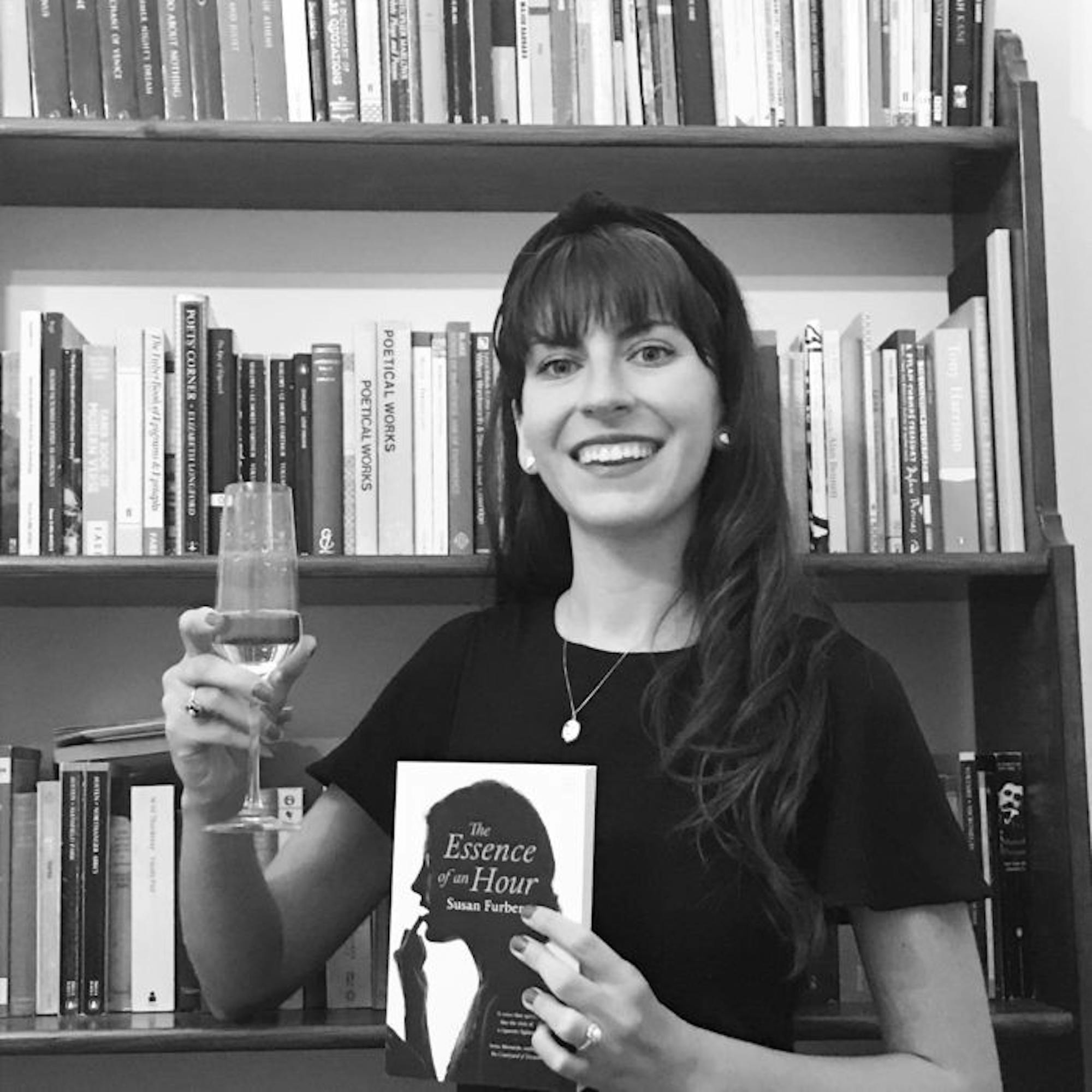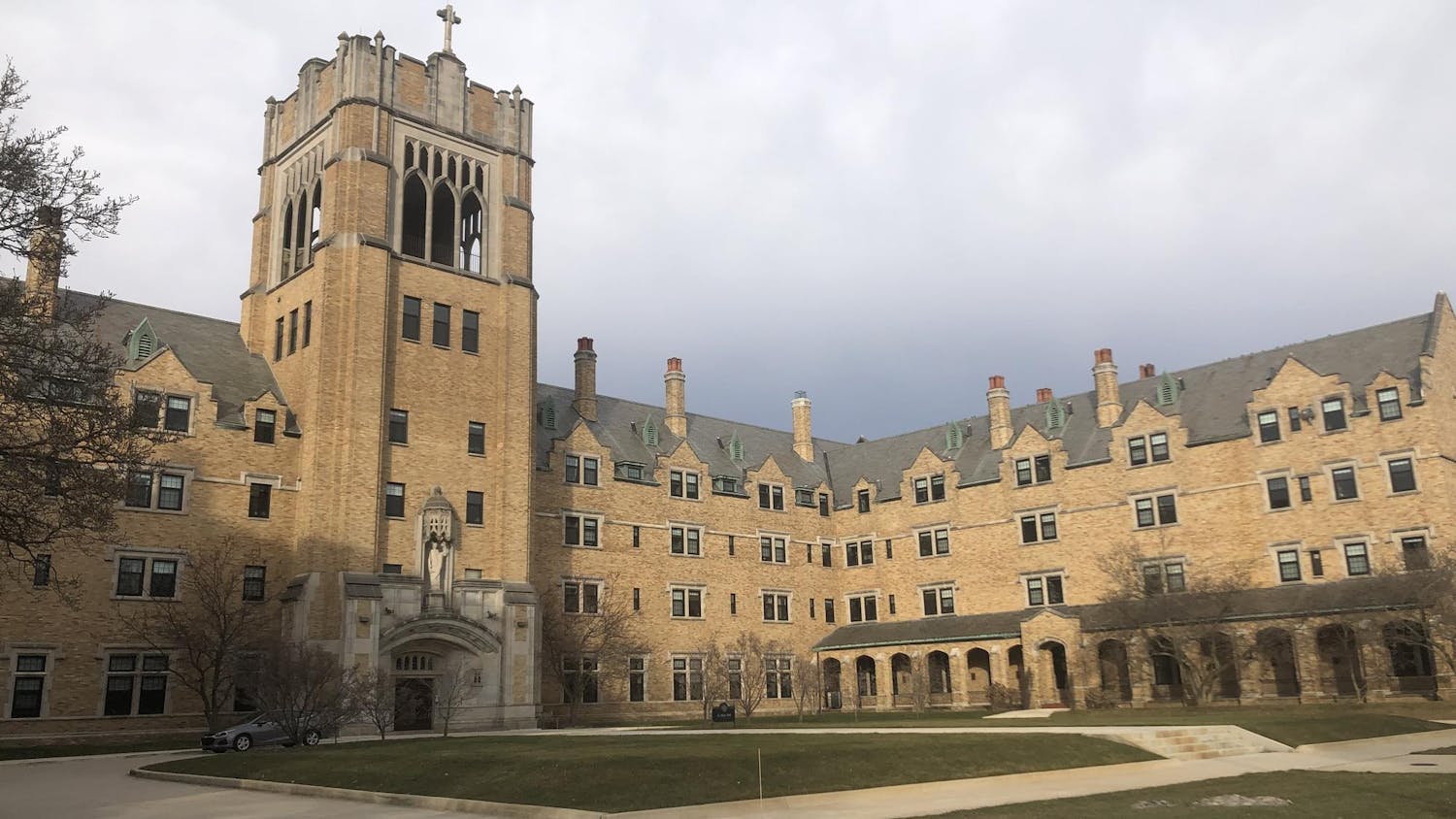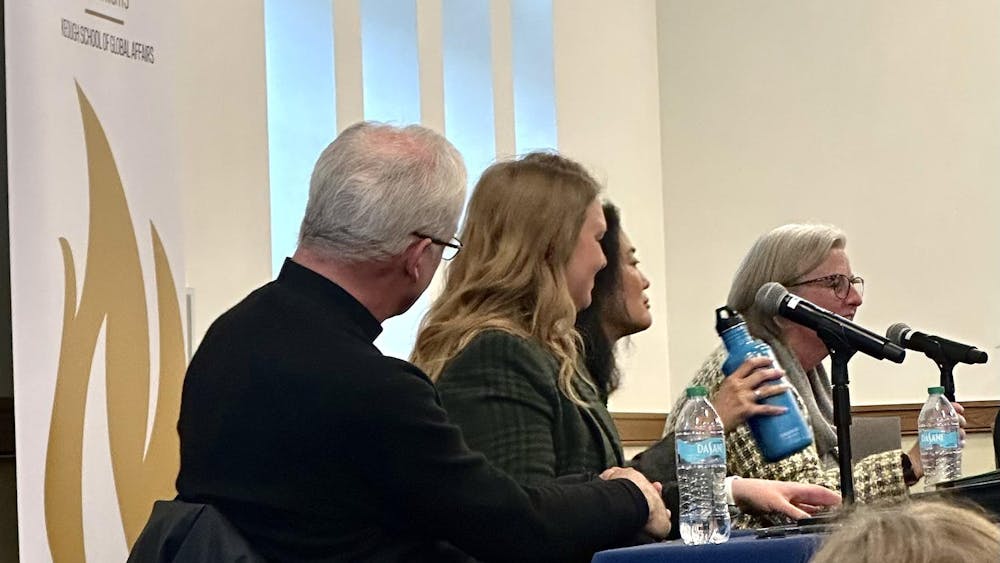Susan Furber (’14) released her first novel “The Essence of an Hour” — a story about the coming of age of a young woman in the 1940s — February of this year.
Furber grew up in a small town in the Buffalo region — Grand Island, NY — and knew she wanted to be a writer from a young age.
“I think, for me, it was quite young, actually,” Furber said. “I always liked making up stories. I’m the youngest in my family, but [my siblings] would sometimes play dolls with me. And I would say, ‘Oh no, that character is not good enough — the character would be saying this or doing that.’ So, I think it’s always been there.”
Developing a love of literature in her childhood, Furber desired to become a part of the female literary tradition.
“I remember in my seventh grade English class there was a banner on the wall that had what were considered the greats of literature and I thought, ‘I’m going to read all of those,’” Furber said. “So that’s when I started really setting up and reading Jane Austen and the Brontes, and, you know, really with the concentration on women’s literature, and thinking where can I find my place? Where can I find my voice within that?”
When she came to Saint Mary’s, Furber said she debated between majoring in English or history because she excelled in both subjects as a high school student. Ultimately, she decided to study English so she could learn more about the craft of writing.
“What I enjoy most of all is English literature,” she said. “I’ve always concentrated on just reading as much as possible and reading many narratives and ... reading stories that may not necessarily be anything like what I’d like to read at all, but I think it all goes into teaching you as much about the craft.”
Furber also developed an interest in philosophy after taking an introductory course and decided to pursue a minor in the field. She credits philosophy professor Patti Sayre for changing the way she viewed the world.
“She really saw a promise in me and understood the way my mind thought — it wasn’t a sort of a logical philosophical mind, but that it was really interested in certain areas and certain ideas — and helped to develop that,” she said.
In 2012, Furber was the only student to participate in the College’s inaugural year of the Oxford study abroad program, following Sayre’s suggestion. Furber described her experience in the United Kingdom as “eye-opening” because of the community she was able to form with the other students she met overseas.
Later in her academic career, Furber took a literature course at Notre Dame about the Bildungsroman, the coming-of-age story, in 19th century England and 20th century Ireland. After she completed the class, Furber reflected on several ideas she wanted to incorporate into a novel.
“I wanted to deal very specifically with young women’s lives, and how young women operate under the patriarchy — how women inflict trauma on other women because of patriarchal control and why we’ve hurt one another,” she said.
Furber wrote the first draft of what would become “The Essence of an Hour” in the span of a month when she was 19. After finishing the initial manuscript, she stopped working it for several years so her protagonist could authentically reflect on her teens when she was in her twenties.
“When I’d written the first draft, it starts when the main character is a teen, and she’s looking back retrospectively 10 years later,” she said. “Of course, it sounds like a 19-year-old wrote it, and that layer of a natural voice of a slightly older woman, reflecting back on it wasn’t there that well. So that’s something I’ve worked on, you know, in the second, third, fourth drafts.”
After choosing to set her book aside, Furber graduated from Saint Mary’s, got a Master’s in publishing from Oxford Brookes University and settled into a publishing job in England.
As someone who worked in the publishing industry, Furber said she was very happy to find a publisher that valued her craft but also wanted to collaborate to improve her manuscript.
“[My book] ultimately was accepted by a very small Yorkshire publisher called Valley Press, and they mostly do poetry, and that really struck a chord with me because I thought, well then they really care about language and they really care about their author,” Furber said. “So, they just seemed like a really lovely fit ... I wanted to work with an editor who would challenge me in the way that I like challenging authors.”
The publication of “The Essence of an Hour” was slightly delayed by the COVID-19 pandemic, but the novel was released this February. At the time, Furber celebrated its release with a virtual book launch.
Now that the novel has been out for a few months, Furber said the audience has been more diverse than she initially expected.
“I sort of thought the audience is probably young women who’ve been through similar circumstances or probably interest in this, but I’ve had older men read that as well and say what reminds [them] a lot of how [they] thought when [they were] 18,” she said. “That’s really interesting that it can capture the way that it means to be young, for anybody.”
Furber is currently working on her second novel and wants to continue writing about the themes of her first book.
Furber advises young female writers to read a variety of literature that both conforms with and challenges the way they see the world.
“Read as much as you can, I would say that is always the best advice ... maybe even things you don’t want to read, different points of view,” she said.
Furber said she also hopes aspiring writers will truthfully tell their stories without fear.
“Don’t be afraid to just commit and keep telling your story as authentically as you possibly can and don’t worry again about the external criticism of [doing] that.”
Saint Mary’s alumna publishes debut novel, shares journey as a writer
Courtesy of Susan Furber
Susan Furber released her first novel “The Essence of an Hour” February of this year. She hosted a virtual launch party to safely celebrate its release during the pandemic.









